By Chinwendu Obienyi
Central Bank of Nigeria (CBN) Governor, Dr Yemi Cardoso, has told anxious Nigerians to calm down, as days of economic turmoil are numbered.
He said the monetary and fiscal wings are steering the economic ship towards stability.
The efforts, he said, are reverberating positively across financial markets and gradually returning investor confidence as macroeconomic fundamentals stabilise.
Fielding questions from journalists at the Monetary Policy Committee (MPC) meeting which held in Abuja recently, Governor Cardoso spoke candidly about currency stability, foreign reserves, diaspora remittances and what it will take to fully restore trust in Nigeria’s financial system.
According to the Governor, Nigeria’s economy is not just stabilising as it is being restructured for long-term credibility and growth.
Already, Nigeria’s economic outlook is drawing praise from global credit agencies like Fitch Ratings.
Excerpts:
Fitch ratings and Nigeria’s economic growth on track
The recent upgrade by Fitch Ratings is both timely and significant, especially in the context of ongoing global economic headwinds and widespread uncertainty. It reflects a positive shift in the perception of Nigeria’s macroeconomic stability and offers a vote of confidence from an internationally respected credit rating agency. Such an endorsement underscores the progress Nigeria has made in restoring economic fundamentals and instilling confidence in its fiscal and monetary direction.
International observers and institutions tasked with assessing global economic trends have increasingly recognized Nigeria’s efforts toward economic stabilization.
These acknowledgments serve not only as validations of current policy moves but also as signals to potential investors that the Nigerian economy is gradually becoming a more predictable and investable environment.
Economic growth is intrinsically tied to investment, and investment only thrives in stable environments. Investors, naturally, are risk-averse; they seek out economies where the political and economic landscape allows for long-term planning and secure returns. Stability, therefore, breeds confidence. Confidence invites investment. Investment fuels production, job creation, and ultimately, sustained economic growth.
I think that is definitely the trajectory that you will find in all countries of the world. We obviously have been through a long period of instability and I think that clearly what is being recognized is that the Nigerian economy is now stable, and there is interest in those who want to invest, to now invest. Clearly, the inflation numbers speak for themselves and we have discussed here that the overall trajectory is in the right direction. Not one particular aspect of managing the economy is a bullet that will solve all the problems. It is not. Rather it is a multiplicity of different endeavors, and that is why the combination of the efforts that are being made are yielding results in terms of stability. Do not forget that the central bank is the custodian of stability in an economy. If you look at the exchange rate, for example, volatility has reduced from over 4 per cent a year ago to less than half of 1 per cent around now. So, that is an indication of stability, and with the increasing collaboration between the fiscal and the monetary side, definitely the journey that we are going through will begin to yield greater results. As time goes on, I have no doubt about that.
Currency depreciation, FX stability and BoP surplus sustainability
On the issue of depreciation of the currency, which obviously everybody is always very interested in, the way I will put it is to say that if you look at it and make the comparison between Nigeria during the last month or so, month or two, when the whole issue of global tensions got heightened and let us face it right now, we are in a period of heightened uncertainty.
If you were all observing, you will find that the various currencies of the world were under attack and were having to defend themselves. You find that, relative to other countries, Nigeria came out very well engaged. We were able to ensure that our depreciation was very modest, and that the stability was pretty much there, and that, in my view, was a reflection of a lot of the measures that we had taken prior to this time to stabilise our economy.
I dare say that if those actions had not been taken when they were, the results would have been disastrous for us. So it is a good thing that we started these reforms early, and that we stayed the course to the point where we built buffers which are able to withstand shocks that came in and that really sort of dovetails into the issue of reserves. As with our reserves, it may be necessary to just make a slight digression to reemphasize what I am about to say. We published our reserve numbers recently, and if you observe there, our net reserves went up from slightly over $3 billion to about $23 billion, which was a quantum leap in our reserve position. Again, I will say that all these are happening as a result of transparency in process, ongoing reforms, which are giving confidence to many players in that industry who perhaps have been on the sidelines up to that point in time, and are bringing about the results.
I always say that the numbers speak for themselves beyond the gross reserves, which was at $40 billion, as at that time, the net reserves have grown quantumly, and that will continue the path whereby we will ensure that we have sufficient buffers beyond the IMF six month import cover to ensure that we continue to keep our economy in a safe and sound mode.
The sustainability of the surplus you talk about and again I must say, I must comment that that in itself speaks volumes, because you have a situation where, beyond just oil prices, in fact, if you look at the oil sector itself, you will find that the importation had gone down, with the Dangote refinery and all the other refineries coming up, the demand obviously will go down.
The gas exports have been on an upward trajectory now that we have a competitive currency, and it is something that you will help me, help me talk about over and over and over again, our currency now is more competitive, so this should encourage exports, and indeed, for us as Nigeria and Nigerian businessmen, the opportunity to extend that dragnet into our sub region is also an enormous opportunity now that we have such a competitive currency. My belief is that if we continue doing the things we have done up to this point in time that have resulted in a positive surplus, we should be able to, in fact, improve that without too much of a problem.
Confidence and trust
I have constantly said and repeated the fact that at the central bank, we are on a mission to restore confidence and build back trust. We appreciate the fact that in this journey, we need all stakeholders to find that they are dealing with a central bank that will not disappoint and that is the reason why some of the things we did and we have done up to this point in time, it may seem like nothing, but it is a big deal. For example, when we talk about publishing net results figures and doing it, there is a reason why these things happen. People have to know that when the central bank says it is going to do something, it does it. We recognise that there is a need to rebuild our institution, the central bank. We recognize that, and I assure you that we are doing everything possible to ensure that that happens. It is not something that will happen overnight. It is not possible. There are a lot of areas that we literally need to reset completely and start all over again, and we are doing so but those things do take time. But what I want to assure you is that we will be consistent as we have been over the past 18 months, and we believe that once we continue in that direction, we will be successful in building back the trust that has been so badly eroded over a period of time. I am happy and pleased, I must say that particularly in the international arena, both the IMF and World Bank meetings and the very successful outing that we had in the NASDAQ building in New York, the feedback from those particular engagements have been very positive, and I recall that there was a particular the person that moderated one of these sessions was quoted as saying that they have been covering these activities in Nigeria for so many years, and this is the first time that they have seen so much interest in investors coming to Nigeria that it is no longer a question of should we be there. It is a question of when we will be there.
Pan-African payment system transactions
This is something that has been a long time coming. It should have come earlier, but in any case, be that as it may, it could be coming at a better time and the reason is, as I said earlier, we have a relatively more competitive currency. There is already a lot of trading that takes place, especially in the sub region and much of what you find is that those who trade in that route are subjected to enormous risk.
Hence, doing it with a payment system that is secure and safe will eliminate those risks. One of the outcomes of the discussions we held at the Spring Meetings and also in New York, was obviously the concern with respect to tariffs and the impact that tariffs have on economies and increasingly, the discussion started to come up that various countries should see means of collaborating amongst themselves, particularly on a regional level. So I believe that having a payment system that is safe, secure and can be relied on, is a step in that direction.
It will automatically put people who, up to this point in time, as I said, had used risky means, moving physical cash from one place to the other. That is all gone and I realized also that sometimes it takes a while for people to test these systems and to have confidence in them, which is understandable, but I just want to say that, they don’t have to, and that if they can, if that payment system is well ingrained with the openness of economies, especially now that we know that the risk to global trade have become a bit more uncertain.
This could be a means of ensuring that the catalyst for trade in the sub region is set alight.
Annual financial statements
It is important to make a clear distinction: the Central Bank is not a commercial bank. Its role, responsibilities, and operational framework are fundamentally different. For that reason, I would caution against comparing the financial indicators or performance metrics of the Central Bank with those of commercial banks. Such comparisons are not only inappropriate, but they also risk misrepresenting the purpose and function of the apex monetary authority. The Central Bank’s mandate is to ensure monetary and financial stability, not to generate profits in the manner of private-sector institutions. One of the first major takeaways is transparency, accountability and so we must publish our numbers, that is the law and we did that which should give confidence to everybody that the central bank is walking the talk. Those who make it a point of duty to understand the complexities of a central bank and its operations are really free to discuss, to come to ask questions, and they do so. That is something that we are very open to continuous engagement. The other thing that is important is that this should help to validate certain things that we say during the course of the year. Again, the net reserves figure, I recall when it was first published, there were some skeptics who felt that they would only believe it when they saw the audited financial statements. Well, so the audited financial statements are there. So as I said, this also helps to validate certain things that go on within the central bank and also to show something we continue to talk about, that is, the uncompromising stance that the CBN has taken with respect to orthodox monetary policies. If we are not employing orthodox monetary policies, you will know. So these are all part of the takeaways, important as it is, but again, as I said, it should give you confidence in the fact that we are walking the talk. If we are supposed to be producing our statements on a regular basis, we are doing so because it gives a better sense for those who dig down into it to have an appreciation of the challenges that this central bank inherited 18 months ago. For example, if you compare the numbers for 2023, you see a huge loss of over N1 trillion and within a year it had been moderated to about $30 billion. This gives an indication of the extent of the challenges that the central bank has been through over the past 18 months or so.
CBN closing the trust and product gap
First and foremost, yes, I agree that there is a trust deficit. Absolutely and it is important that we fully understand where that trust deficit is coming from. Take, for instance, the cost of repatriating funds from overseas to Nigeria and many other emerging markets. On average, it stands at around 7 per cent. That is clearly unacceptable and it is something I felt so strongly about that I had raised it directly with the President of the World Bank during the last Spring Meetings, where I sought his collaboration and ideas on how we could bring these costs down. One key solution, which we have now begun to pursue, is rooted in the volume business. As we drive up transaction volumes, the cost of remittances will inevitably decline and I must say, the recent bold steps taken in partnership with the Nigerian Regulatory Bank Verification Network (NRBVN) is truly game-changing. This is what our diaspora community has been waiting for, that is, the ability to transact from abroad seamlessly. Now, the opportunity to invest in the country of their birth is wide open. It could not have come at a better time.
However, let me be clear that this alone doesn’t bridge the trust deficit. There is more work to do. Chief among the remaining tasks is strengthening Know Your Customer (KYC) frameworks. We need to establish a robust screening process to ensure that those using these remittance facilities are properly vetted. Work has already begun on this, in collaboration with NIBSS (Nigeria Inter-Bank Settlement System), and we are taking great care to avoid creating new vulnerabilities. A crucial parallel task is ensuring Nigeria is removed from the Financial Action Task Force (FATF) grey list. This alone will enhance international confidence and make remittance channels even more attractive for Nigerians abroad. Once these improvements take shape, we will see greater comfort and engagement from senders. On the issue of product gaps in the financial system, I am pleased to report that we have brought the Nigerian banking industry along on this journey. When we began focusing on remittances, we first engaged with the IMTOs (International Money Transfer Operators) and that was a very successful endeavor. We then reached out to individuals in the diaspora — people who are doing incredibly well across the globe — and we listened to their concerns and frustrations. Based on their feedback, we went back to the drawing board. We refined our strategy, got the banks involved, and many of you may recall our diaspora banking engagement during the annual meetings in Houston, Texas. That initiative also proved successful, prompting Nigerian banks to develop innovative, diaspora-friendly products. In fairness to the banks, many of them have long wanted to do this but faced bureaucratic or technical bottlenecks that slowed their progress. Now that we have cleared those hurdles, they are eager and committed to seize the opportunity to put out products that are diaspora friendly, and we have encouraged them to take full ownership. This is no longer solely the responsibility of the Central Bank. We see ourselves now as facilitators and catalysts clearing the path and letting the private sector take the lead. Let me conclude by reiterating a key target: $1 billion a month in diaspora inflows. It might sound ambitious, but it is not unattainable. In fact, we have already made remarkable progress moving from just over $200 million to peaking at over $600 million in a single month. That is the Nigerian spirit in action and at work. There is nothing that would stop us from exceeding that. This shows what is possible when we get creative, stay committed, and work together. Other countries like Pakistan, India, and others have done this, so why can’t we? So, this is a reflection and effort that proves what can be achieved when the government steps back and allows the private sector to lead. We have opened the door, removed the roadblocks, and handed it over to the banks. They will benefit from it and most importantly, all Nigerians will be better off as a result.



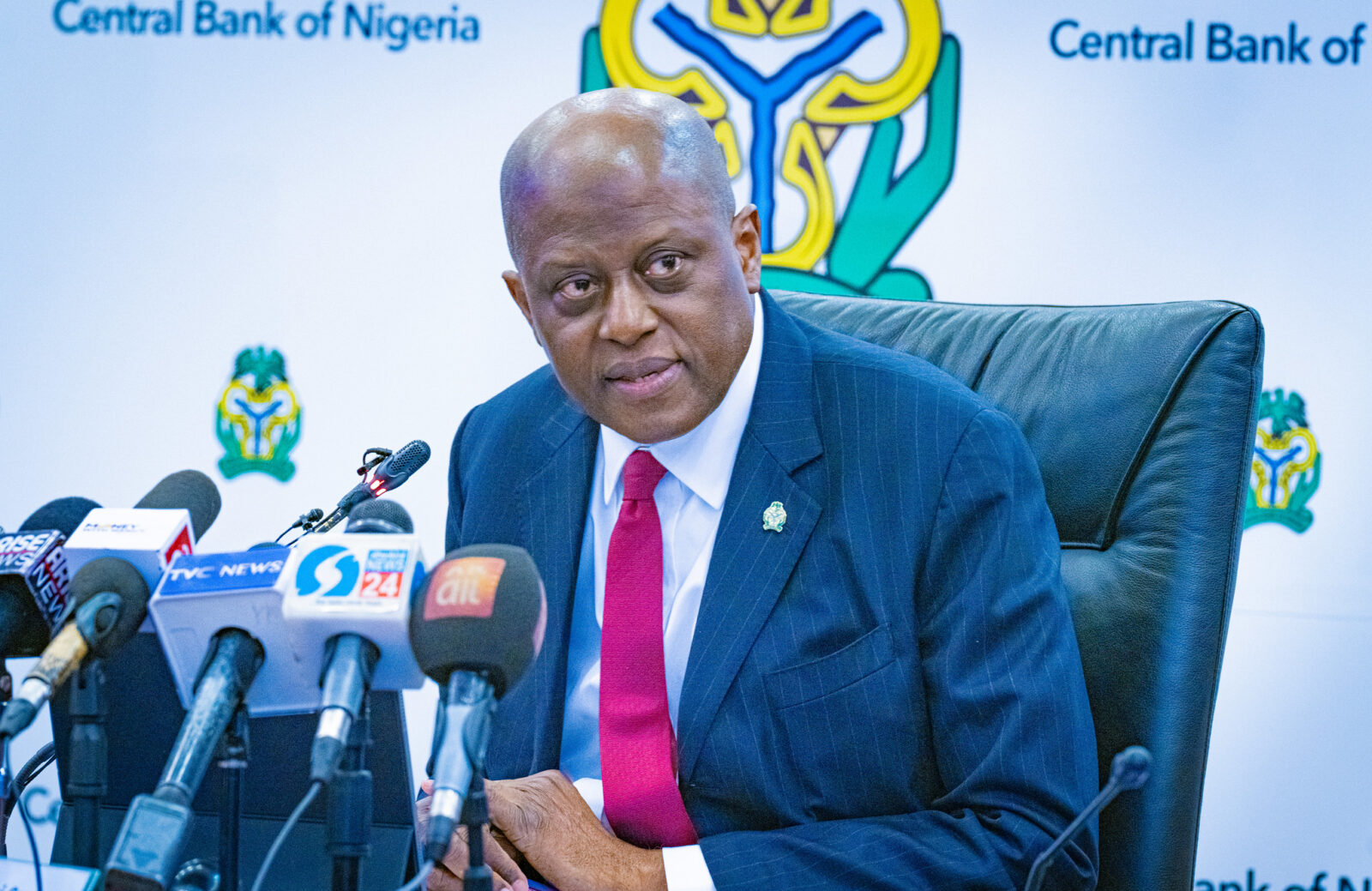


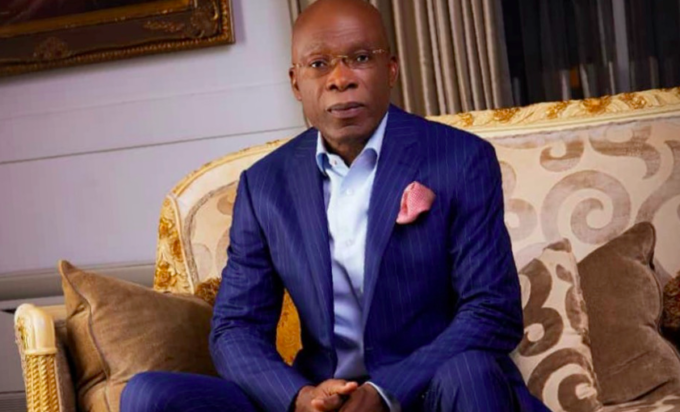

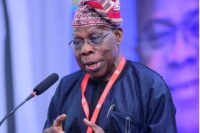



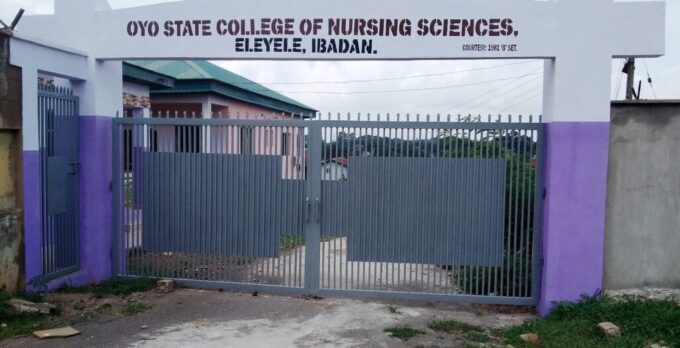


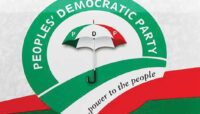

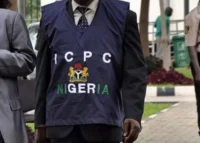
Leave a comment